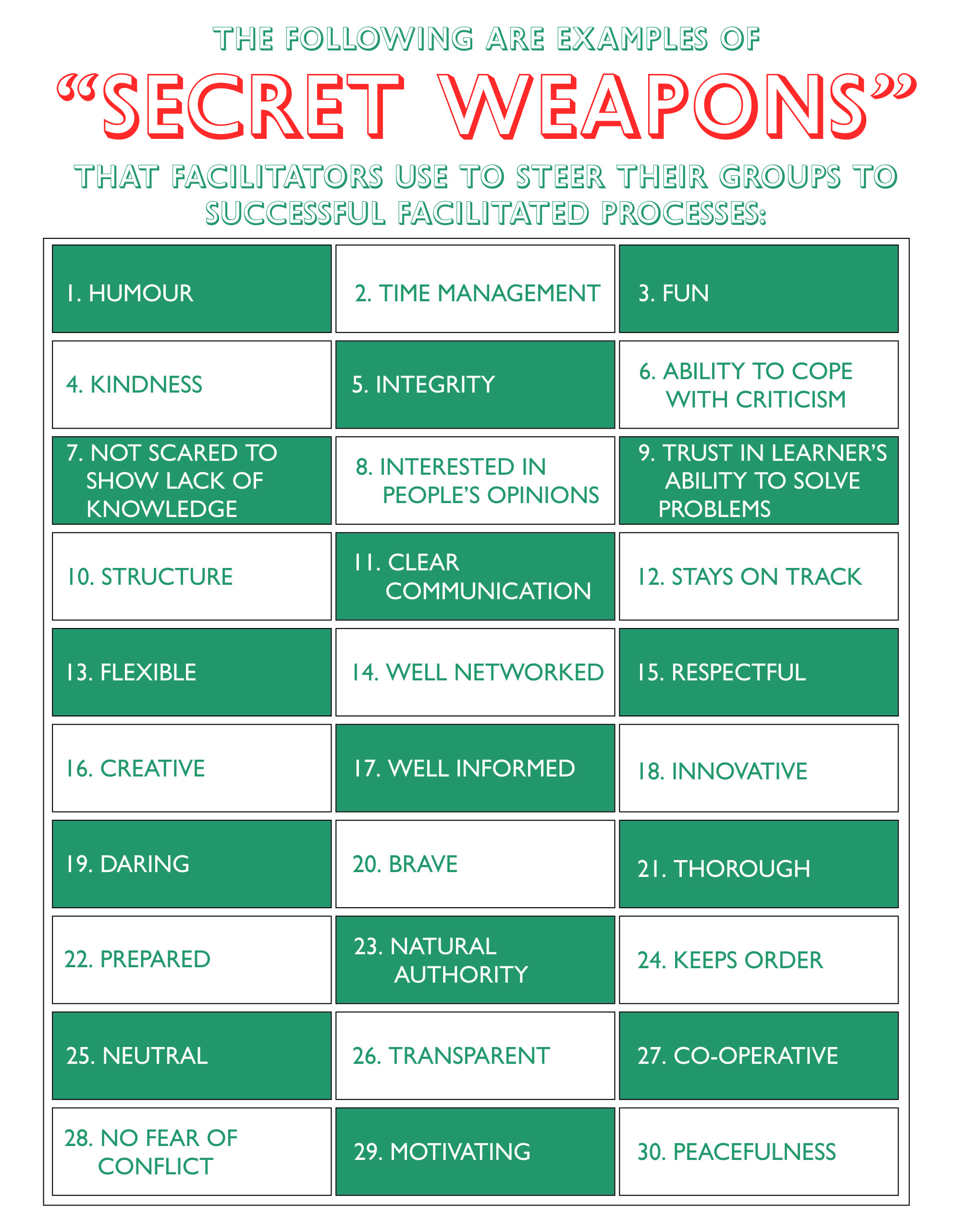
All facilitators have different styles and methods of facilitation. The facilitator should enjoy his/her work and is encouraged to spend some time examining his/her strengths and weaknesses in the role, asking himself/herself if there is any bias, making sure that he/she doesn’t run the risk of overindulging high-flying or “nice” learners and putting others in various rigid compartments! It is important to differentiate between the attitude of a facilitator and their skills. The skills are interchangeable, while the attitude is an integral part of the facilitator’s own individual understanding of the role and his/her ability to offer the group both helicopter views of the process as well as mirroring bird’s or even snail’s views. Each facilitator is encouraged to examine his/her own strengths and weaknesses and discover their own “secret weapons” in winning over both group and issue.
